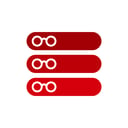

Sun made two noteworthy bits of desktop Unix news this week when it released StarOffice 7 for Solaris x86, and announced a deal inked with an Indian insurance company to put the product on 10,000 Windows desktops.
Sun is once again pushing Solaris for the desktop in the hopes of shattering Windows’ hold. Even the most devout Unix admin should keep his schadenfreude in check and stay wary of MyDoom. HP patched BIND on HP-UX, Debian patched a bug in its Perl package, and Ethereal and gaim patches continue to roll in. For our tip of the week, we highlight locate and slocate, tools for further honing file search skills.
The first piece of news shouldn’t be much of a surprise: Sun’s obviously pushing Solaris x86 hard on all fronts, and making its own office suite run on the operating system is a no-brainer. Along with the release came word that the full Java Desktop System, heretofore limited to Linux, will also make the jump to Solaris x86. We’re waiting with bated breath for the next round of “date Linux, marry Solaris” interviews from Sun higher-ups, this time aimed at de-legitamizing Linux on desktop systems.
The second piece of news is noteworthy not because it represents a major Unix desktop deal but rather because it is a major deal for a piece of software Unix and Windows have in common. And, like Sun’s moves in China, it represents a major testbed to demonstrate that perhaps users can perform victory dances and “land the big account” without a reliance on PowerPoint.
It’s not the first time we’ve worried about the alternate universe effect, i.e., when users are confronted with something similar to, but not exactly, what they’re used to. With every StarOffice deployment, organizations without very specific, Office-satisfied needs will have reason to question why the steno pool
isn’t using Sun’s less-expensive and compatible offering.
LinuxToday periodically tackles the desktop issue from a Linux perspective. Recently, it pondered what constitutes “the desktop.” Although the site speaks to a broader audience than Enterprise Unix Roundup, we’re sure of one thing: An enterprise desktop doesn’t have to look like it was peddled out of the electronics section at Walmart. On the enterprise desktop, deals like Sun’s with Star Office make Microsoft look distinctly vulnerable: If the Microsoft Office lock can be broken, why do enterprise users need the only operating system on which it can run? With StarOffice being pushed aggressively alongside an obvious interest in getting Solaris x86 onto enterprise desktops, Sun’s clearly asking the same question.
In Other News
Simply finding files on a Unix system can be a difficult quest for users. In past weeks, we’ve approached the problem from several angles, including considerations of how to better use find and du to narrow down a search for certain kinds of files, or files of a certain size. One minor irritant with find, of course, is that it recurses through a directory tree every time it’s invoked. That’s not good for those short on time or fast hard drives.
There’s an alternative to find, though, in the form of locate, which takes an asynchronous approach to finding files:
It allows you to build a database of files during off-hours by recursing through a filesystem and recording what turns up. It then makes the database available for searching any time. The immediate advantage of this approach is that running locate will net results in a few seconds as opposed to minutes, as is sometimes the case with find.
locate is already available on most Linux distributions as plain old locate or, the more secure version,
slocate, which does a better job of keeping unauthorized users from learning the location of files they shouldn’t be looking for.
The syntax for locate is simple enough:
locate foo will turn up every occurrence of the string “foo” in the filesystem.
locate -r foo will look for the regular expression “foo” in the filesystem, allowing for more fine-tuned searching.
The other useful thing to know about locate is that it’s there at all. As we mentioned, locate comes installed on most Linux distributions and usually has a cron job set up to run in the early morning hours. This enables it to index when the system’s resources are most free. That indexing job, much like a find search, tends to cause a great deal of hard drive thrashing, which will cause some monitoring utilities (like mrtg) to report heavy access during odd hours.
One final note: We know of one novice Linux admin who yanked a server’s Ethernet cable out of the wall when he noticed a hard drive light go from the occasional flutter to an unblinking indication of heavy access. He thought a cracker was loose in his machine and sizing it up for weaknesses. Being up at 3 in the morning will do that to you, and so will not realizing that locate is just trying to help.
Property of TechnologyAdvice. © 2025 TechnologyAdvice. All Rights Reserved
Advertiser Disclosure: Some of the products that appear on this site are from companies from which TechnologyAdvice receives compensation. This compensation may impact how and where products appear on this site including, for example, the order in which they appear. TechnologyAdvice does not include all companies or all types of products available in the marketplace.